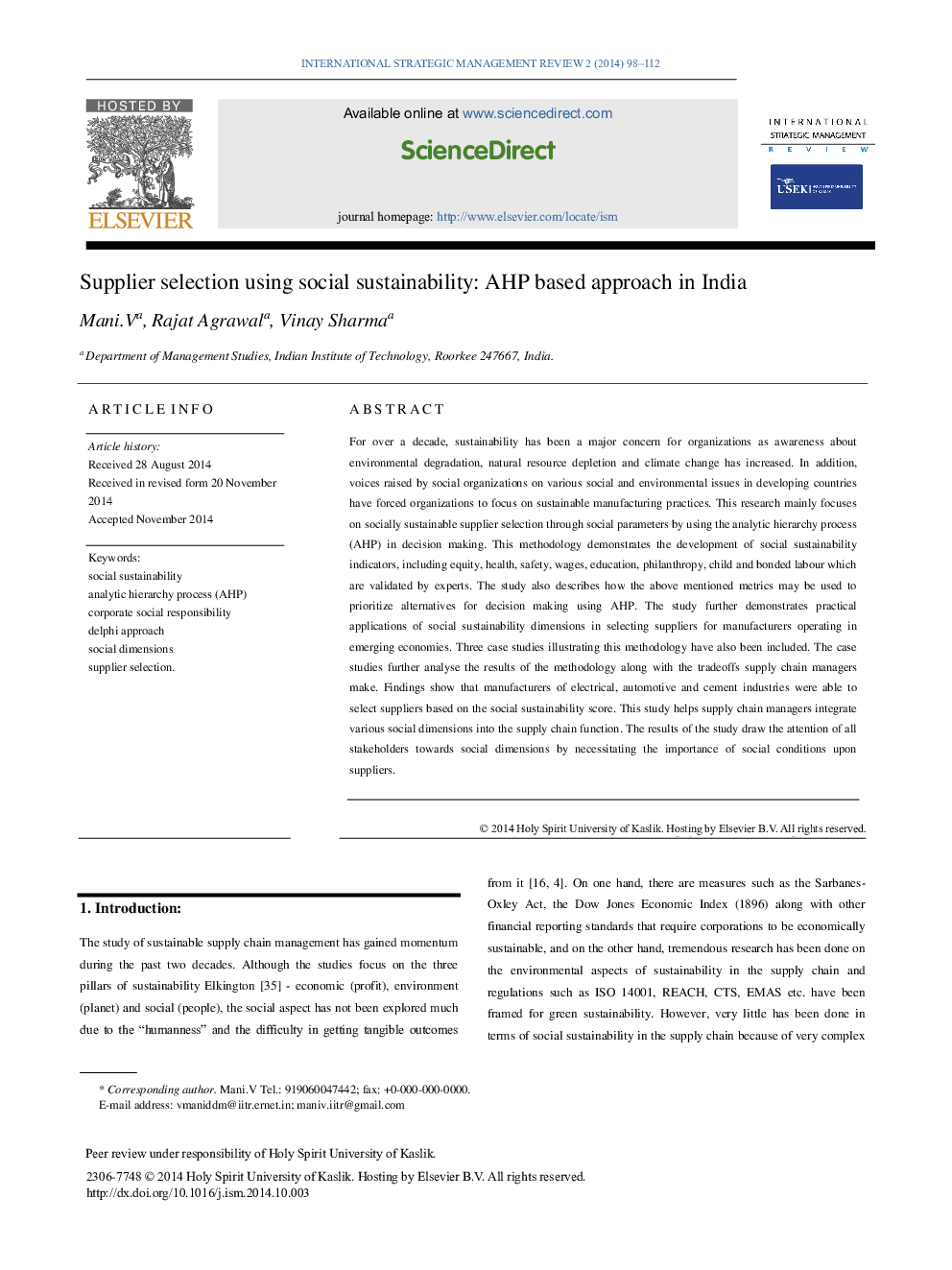| Article ID | Journal | Published Year | Pages | File Type |
|---|---|---|---|---|
| 1003096 | International Strategic Management Review | 2014 | 15 Pages |
For over a decade, sustainability has been a major concern for organizations as awareness about environmental degradation, natural resource depletion and climate change has increased. In addition, voices raised by social organizations on various social and environmental issues in developing countries have forced organizations to focus on sustainable manufacturing practices. This research mainly focuses on socially sustainable supplier selection through social parameters by using the analytic hierarchy process (AHP) in decision making. This methodology demonstrates the development of social sustainability indicators, including equity, health, safety, wages, education, philanthropy, child and bonded labour which are validated by experts. The study also describes how the above mentioned metrics may be used to prioritize alternatives for decision making using AHP. The study further demonstrates practical applications of social sustainability dimensions in selecting suppliers for manufacturers operating in emerging economies. Three case studies illustrating this methodology have also been included. The case studies further analyse the results of the methodology along with the tradeoffs supply chain managers make. Findings show that manufacturers of electrical, automotive and cement industries were able to select suppliers based on the social sustainability score. This study helps supply chain managers integrate various social dimensions into the supply chain function. The results of the study draw the attention of all stakeholders towards social dimensions by necessitating the importance of social conditions upon suppliers.
